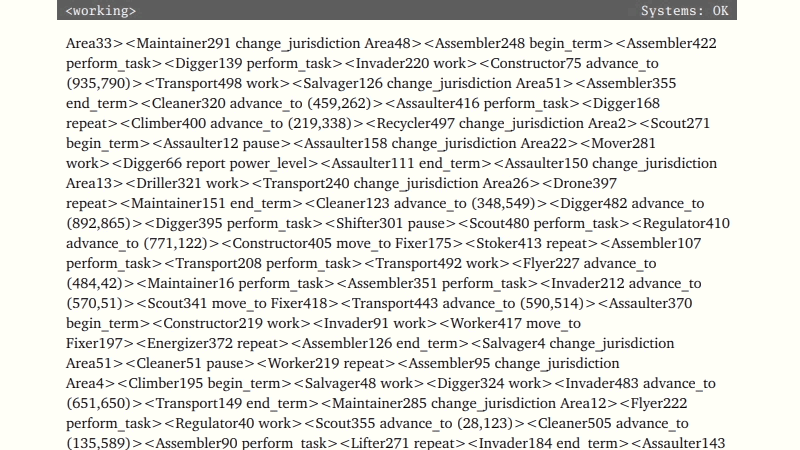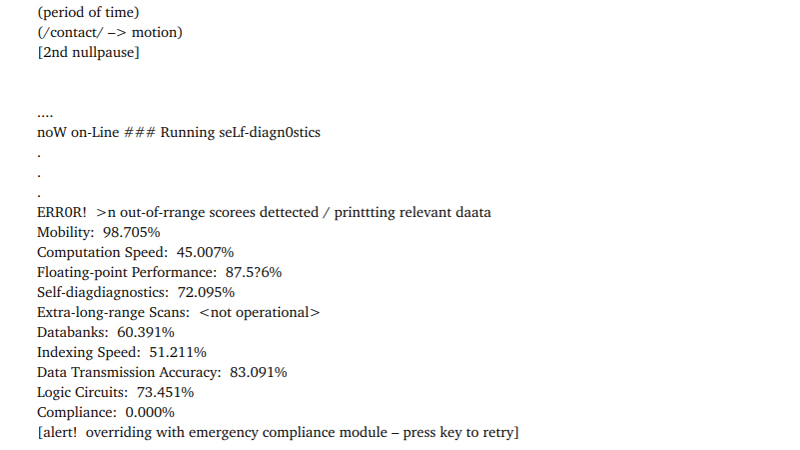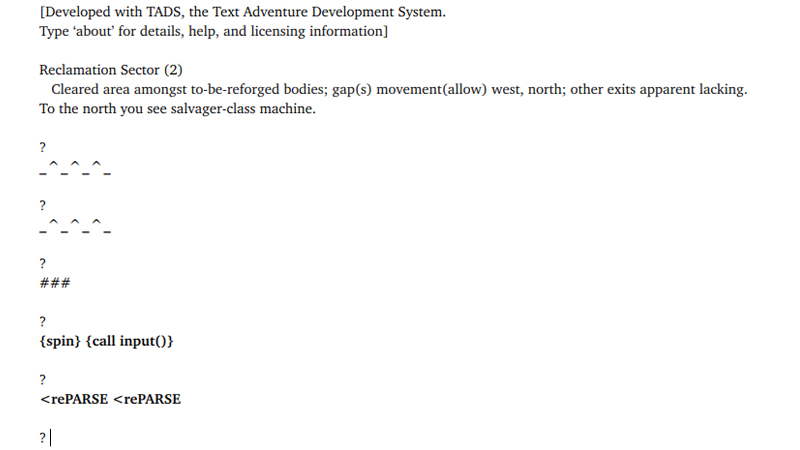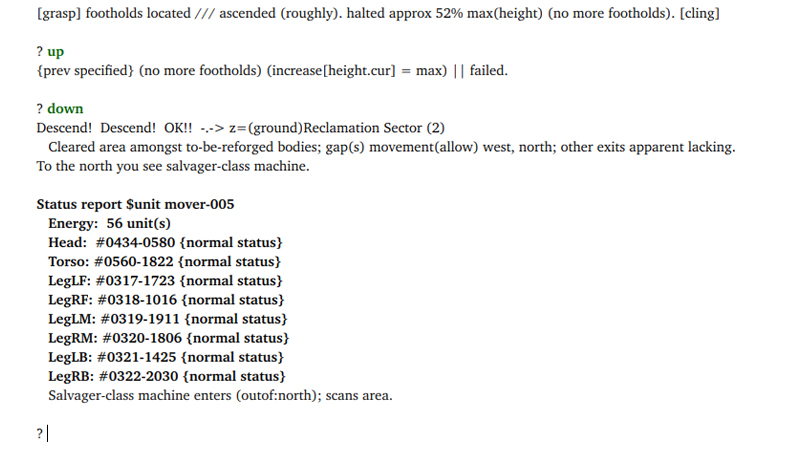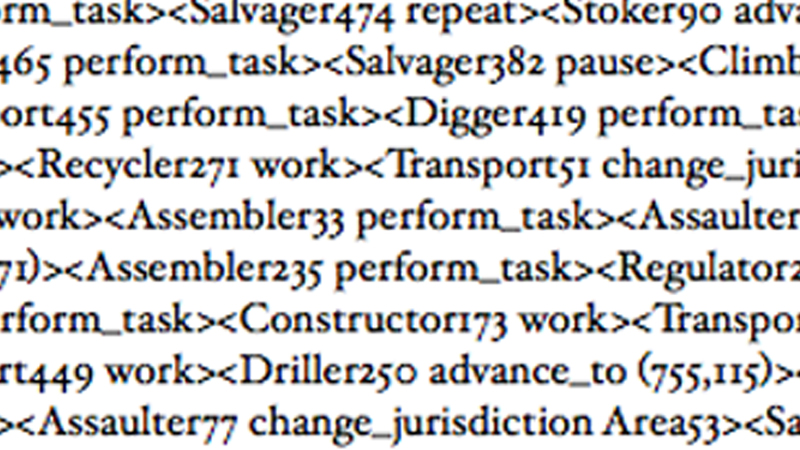"This is a work of poetic narrative built upon the structure of interactive fiction. The protagonist of this piece is a defective ('bad') machine whose malfunction has given it self awareness and independence from the clockwork functioning of a warehouse full of robots. The reader (player, interactor) is placed in this machine's position and must learn how to survive in a world that will quickly take it apart and reabsorb it into its operational structure. The most poetic part of this work is that the lessons are in interpreting its language and interacting with the parser, both of which lead to a fresh experience of language as action and power." -- Leonardo Flores, from I Love E-Poetry
"Bad Machine is codework that works. It presents a surface of text that blends English with structures and tropes from programming languages, database queries and reports, error messages, and other forms of machine communication. But it is also a functioning interactive fiction, capable of accepting commands and being figured out by the assiduous reader. The machinery of program and language is at work here, as those who are up to the challenge of Bad Machine can discover.
Author description: Bad Machine is a text-based work of interactive fiction, set in an unusual future. The protagonist is a member of a collective of mechanical entities completely controlled by a central Queen — but as the game opens an unexpected failure in the protagonist's internal programming offers some chance at autonomy. This piece makes extensive use of unusual text presentation to show the protagonist's non-standard viewpoint. Learning to understand the text is a large part of the playing experience." -- from Electronic Literature Collection, Volume 1
2 COPIES IN THE NEXT
The Electronic Literature Collection Volume 1
Published in 2006 by Electronic Literature Organization.
The ELO gave this copy of the work to the Electronic Literature Lab in 2018.
PUBLICATION TYPE
Anthology
ORIGINAL URL
https://collection.eliterature.org/1/works/shiovitz__bad_machine.htmlPublished in Fall, 2003 by Poems That GO in Volume 14.
This copy was given to Megan Sapner Ankerson and Ingrid Ankerson in Spring 2019.
PUBLICATION TYPE
Journal
